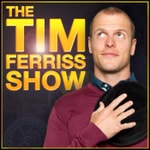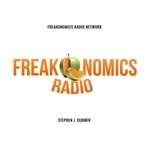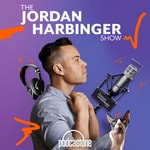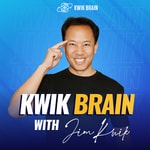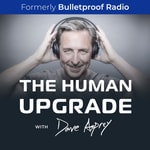From Our Neurons to Yours – Details, episodes & analysis
Podcast details
Technical and general information from the podcast's RSS feed.
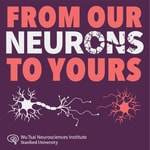
From Our Neurons to Yours
Wu Tsai Neurosciences Institute at Stanford University, Nicholas Weiler
Frequency: 1 episode/16d. Total Eps: 60

From Our Neurons to Yours crisscrosses scientific disciplines to bring you to the frontiers of brain science. Coming to you from the Wu Tsai Neurosciences Institute at Stanford University, we ask leading scientists to help us understand the three pounds of matter within our skulls and how new discoveries, treatments, and technologies are transforming our relationship with the brain.
Finalist for 2024 Signal Awards!
Recent rankings
Latest chart positions across Apple Podcasts and Spotify rankings.
Apple Podcasts
🇨🇦 Canada - lifeSciences
28/07/2025#99🇩🇪 Germany - lifeSciences
28/07/2025#18🇺🇸 USA - lifeSciences
28/07/2025#86🇩🇪 Germany - lifeSciences
27/07/2025#43🇺🇸 USA - lifeSciences
27/07/2025#59🇩🇪 Germany - lifeSciences
26/07/2025#28🇺🇸 USA - lifeSciences
26/07/2025#41🇨🇦 Canada - lifeSciences
25/07/2025#96🇩🇪 Germany - lifeSciences
25/07/2025#30🇫🇷 France - lifeSciences
25/07/2025#96
Spotify
No recent rankings available
Shared links between episodes and podcasts
Links found in episode descriptions and other podcasts that share them.
See allRSS feed quality and score
Technical evaluation of the podcast's RSS feed quality and structure.
See allScore global : 72%
Publication history
Monthly episode publishing history over the past years.
Depression's distinctive fingerprints in the brain | Leanne Williams, Stanford University
Season 5 · Episode 6
jeudi 29 août 2024 • Duration 28:11
Getting help for depression can be like purgatory. Setting aside for a moment the stigma and other barriers to seeking treatment in the first place, finding the right combination of medication and/or therapy can be a months- or years-long process of trial and error. And for about one third of people, nothing seems to work.
Today we're talking with Dr. Leanne Williams, the founding director of the Stanford Center for Precision Mental Health and Wellness and Vincent V.C. Woo Professor in the Stanford Department of Psychiatry and Behavioral Sciences.
Williams and her team have recently used brain imaging and machine learning techniques to identify six distinct "biotypes" of depression — each of which may require a different approach to treatment. Beyond setting the stage for more targeted therapies, better understanding the biology behind the disease could finally cut through the stigma of one of the world's most common brain disorders.
Learn more
- Williams' Personalized and Translational Neuroscience Lab (PANlab)
- The Stanford Center for Precision Mental Health and Wellness
- NEW: Cognitive behavioral therapy enhances brain circuits to relieve depression (Stanford Medicine, 2024)
- Six distinct types of depression identified in Stanford Medicine-led study
(Stanford Medicine, 2024) - Brain scans could help personalize treatment for people who are depressed or suicidal (Science, 2022)
- Williams' scientific publications
Episode Credits
This episode was produced by Michael Osborne, with production assistance by Morgan Honaker, and hosted by Nicholas Weiler. Art by Aimee Garza.
Thanks for listening! If you're enjoying our show, please take a moment to give us a review on your podcast app of choice and share this episode with your friends. That's how we grow as a show and bring the stories of the frontiers of neuroscience to a wider audience.
Learn more about the Wu Tsai Neurosciences Institute at Stanford and follow us on Twitter, Facebook, and LinkedIn.
How the brain helps cancers grow | Michelle Monje
Season 5 · Episode 5
jeudi 15 août 2024 • Duration 21:27
Today, we're talking with Stanford neuro-oncologist, Michelle Monje. This is actually the third time we've had Michelle on the show, in part because she's been a pioneer of three exciting frontiers in neuroscience — so far!
This week, we're going to talk about cancer neuroscience. Michelle founded this new field with her discovery that deadly brain tumors not only link up physically with the healthy brain tissue surrounding them, but the cancers actually need the brain's electrical activity to grow and spread.
It turns out that many cancers — not only in the brain — depend on nervous system innervation for their survival. Understanding this dependent relationship better may present an exciting new line of attack for oncology.
Join us to learn more!
News coverage
- Brain tumors caused by normal neuron activity in mice predisposed to such tumors
- Brain tumors form synapses with healthy neurons, Stanford-led study finds
- Deadly brain cancers act like 'vampires' by hijacking normal cells to grow
- Engineered immune cells target broad range of pediatric solid tumors in mice
Relevant Publications
- Glioma synapses recruit mechanisms of adaptive plasticity
- Glioblastoma remodelling of human neural circuits decreases survival
- Electrical and synaptic integration of glioma into neural circuits
- Targeting neuronal activity-regulated neuroligin-3 dependency in high-grade glioma
- Neuronal Activity Promotes Glioma Growth through Neuroligin-3 Secretion
Review Articles
- The neuroscience of cancer
- Cancer hallmarks intersect with neuroscience in the tumor microenvironment
- Roadmap for the Emerging Field of Cancer Neuroscience
Episode Credits
This episode was produced by Michael Osborne, with production assistance by Morgan Honaker, and hosted by Nicholas Weiler. Art by Aimee Garza.
Thanks for listening! If you're enjoying our show, please take a moment to give us a review on your podcast app of choice and share this episode with your friends. That's how we grow as a show and bring the stories of the frontiers of neuroscience to a wider audience.
Learn more about the Wu Tsai Neurosciences Institute at Stanford and follow us on Twitter, Facebook, and LinkedIn.
Psychedelics Part 2: How do drugs alter our perceptions? | Boris Heifets
Season 4 · Episode 3
jeudi 9 mai 2024 • Duration 23:36
Today, we're going to talk about how psychedelics alter our perception of reality and what that says about... reality!
Welcome to part two of our conversation with Stanford anesthesiologist and psychedelics researcher Boris Heifets!
Last time, we talked with Boris about the question of why psychedelics help people with mental health disorders.
This week, we're going to dive into a different question, which is to explore how psychedelics work in the brain. How are they able to alter something as fundamental as our perceptions of reality — and could understanding these effects teach us about the nature of our everyday perceptions?
Learn more:
- Review: Therapeutic mechanisms of psychedelics and entactogens (Heifets and Olsen, 2024)
- As psychedelics near approval, there’s no consensus on how they work (STAT News, 2023)
- How do psychedelics work? (Carhart-Harris, 2019)
- Heifets Lab website
Episode credits
This episode was produced by Michael Osborne at 14th Street Studios, with production assistance by Morgan Honaker. Our logo is by Aimee Garza. The show is hosted by Nicholas Weiler at Stanford's Wu Tsai Neurosciences Institute.
Thanks for listening! If you're enjoying our show, please take a moment to give us a review on your podcast app of choice and share this episode with your friends. That's how we grow as a show and bring the stories of the frontiers of neuroscience to a wider audience.
Learn more about the Wu Tsai Neurosciences Institute at Stanford and follow us on Twitter, Facebook, and LinkedIn.
Psychedelics, placebo, and anesthetic dreams | Boris Heifets (part 1)
Season 4 · Episode 2
jeudi 2 mai 2024 • Duration 30:27
Psychedelics are a hot topic in psychiatry today. They’re producing dramatic reversals for patients with severe depression, PTSD, and other mental health conditions. But scientists still have fundamental questions about why these drugs are so effective.
For example, is the "trip" even necessary? Some think it is not and are working to design drugs with similar brain chemistry but no psychoactive effects — “Taking the trip out of the drug.”
Others suspect that many of the benefits of psychedelics can be attributed to hype and expectation: People expect to get better, so they do.
Normally scientists control for placebo using a blinded study where patients don't know if they're getting the real treatment or a sugar pill. But how are you going to do this with mind-altering substances? Patients are probably going to figure out pretty quickly whether they got a sugar cube with or without LSD.
Today's guest, Stanford anesthesiologist Boris Heifets, has come up with a particularly clever strategy to tease apart the psychedelic experience, biochemistry, hype and placebo.
Listen for the whole story!
Learn more:
- The Heifets Lab at Stanford Medicine
- The Early Days of a Psychedelic Resurgence? (Stanford Medicine Magazine, 2024)
Depression, ketamine & anesthesia:
- Randomized trial of ketamine masked by surgical anesthesia in patients with depression (Nature 2023 - paywall)
- Ketamine’s effect on depression may hinge on hope (Stanford Medicine, 2023)
Anesthetic dreams and trauma recovery:
- Case report 1: dreaming & knife attack (A & A Practice, 2022 - paywall)
- Case report 2: dreaming & PTSD (American Journal of Psychiatry, 2024)
- Could anesthesia-induced dreams wipe away trauma? (Stanford Medicine, 2024)
- Video: Mothers with PTSD following their sons' deaths talk about dreaming of their sons under anesthesia (Heifets Lab, 2024 — content advisory)
Related episodes:
Episode credits
This episode was produced by Michael Osbor
Thanks for listening! If you're enjoying our show, please take a moment to give us a review on your podcast app of choice and share this episode with your friends. That's how we grow as a show and bring the stories of the frontiers of neuroscience to a wider audience.
Learn more about the Wu Tsai Neurosciences Institute at Stanford and follow us on Twitter, Facebook, and LinkedIn.
Why our brains are bad at climate change | Nik Sawe
Season 4 · Episode 1
jeudi 25 avril 2024 • Duration 23:42
This week on From Our Neurons to Yours, we're talking about the neuroscience of climate change with neuroeconomist Nik Sawe.
If you follow the science or the news, you know how big of a risk climate change is. Storms, coastal flooding, heat waves, extinctions, mass migration — the list goes on.
But — as you can probably also appreciate — it’s really hard to properly perceive that risk. It’s much easier to focus on today’s emergency, this week’s looming deadline, this quarter’s economic forecast — where the risks are objectively much smaller, but feel more pressing.
This is where neuroscience comes in: Why are our brains so bad at perceiving this existential, long-term risk to our society and our planet? And are there ways we could work with our brains' limitations to improve our decision-making around environmental issues and the future more broadly?
To answer this question, we spoke with Nik Sawe, a neuro-economist who uses brain imaging to study environmental decision making in the lab of Brian Knutson in the Stanford Department of Psychology. Nik is also a policy analyst at the think tank Energy Innovation, where he is working on policy avenues to reduce carbon emissions in the industrial sector.
References
- Parks donation FMRI study
- Ecolabeling/energy-efficient purchasing FMRI study
- "Price of your soul" study by Greg Berns
- Dan Kahan science literacy/numeracy and climate change risk study
- Brain stimulation for perspective-taking of future generations
Episode Credits
This episode was produced by Michael Osborne at 14th Street Studios, with production assistance by Morgan Honaker. Our logo is by Aimee Garza. The show is hosted by Nicholas Weiler at Stanford's Wu Tsai Neurosciences Institute and the Knight Initiative for Brain Resilience.
Thanks for listening! If you're enjoying our show, please take a moment to give us a review on your podcast app of choice and share this episode with your friends. That's how we grow as a show and bring the stories of the frontiers of neuroscience to a wider audience.
Learn more about the Wu Tsai Neurosciences Institute at Stanford and follow us on Twitter, Facebook, and LinkedIn.
Famous & Gravy: Mind Traveler | Oliver Sacks
Season 3 · Episode 7
jeudi 14 mars 2024 • Duration 59:43
This week we’re doing something a little different. My good friend Michael Osborne, who produces this show also has his own podcast, called Famous & Gravy – Life Lessons from Dead Celebrities.
I recently guest-hosted an episode about one of my all time scientific and writerly heros, Oliver Sacks, which we're releasing for both our audiences. I hope you enjoy!
---
We've concluded Season 3 of From Our Neurons to Yours! Stay tuned for more conversations from the frontiers of neuroscience in Season 4 — from psychedelics to cancer neuroscience to hypnosis — which we’ll share in just a few weeks.
---
Who was Oliver Sacks?
Oliver Sacks, born on July 9, 1933, was a British-American neurologist, author, and professor known for his groundbreaking work in neuroscience and his compelling narratives exploring the human mind. His unique ability to blend science with storytelling made him a beloved figure in both the medical and literary worlds.
Sacks' career in neurology began in the 1960s, where he studied and treated patients with various neurological disorders. His observations and insights into the complexities of the brain led to significant advancements in the field.
As an author, Oliver Sacks gained widespread acclaim for his books, including "The Man Who Mistook His Wife for a Hat" (1985) and "Awakenings" (1973), which was adapted into a successful film starring Robin Williams and Robert De Niro. His writings, characterized by empathy and curiosity, explored the human condition through the lens of neuroscience.
Throughout his life, Sacks remained committed to understanding and humanizing neurological conditions. He championed the importance of empathy and compassion in medical practice, advocating for a holistic approach to patient care.
In addition to his literary contributions, Oliver Sacks was a revered educator, teaching at prestigious institutions such as Columbia University and the New York University School of Medicine. His lectures and writings inspired countless students and professionals in the field of neurology.
Oliver Sacks' legacy continues to resonate, shaping our understanding of the brain and its complexities. His work transcends disciplines, reminding us of the profound connections between science, humanity, and storytelling.
Episode Credits
Famous and Gravy was created by Amit Kapoor and Michael Osborne. This episode was produced by Evan Sherer with production assistance from Claire McInerney. Original theme music by Kevin Strang.
Thanks for listening! If you're enjoying our show, please take a moment to give us a review on your podcast app of choice and share this episode with your friends. That's how we grow as a show and bring the stories of the frontiers of neuroscience to a wider audience.
Learn more about the Wu Tsai Neurosciences Institute at Stanford and follow us on Twitter, Facebook, and LinkedIn.
The clocks in your body | Tony Wyss-Coray
Season 3 · Episode 6
jeudi 7 mars 2024 • Duration 22:07
Today: the clocks in your body.
We're talking again this week with Tony Wyss-Coray, the director of the Knight Initiative for Brain Resilience here at Wu Tsai Neuro.
Last year, we spoke with Tony about the biological nature of the aging process. Scientists can now measure signs of aging in the blood, and can in some cases slow or reverse the aging process in the lab. We discussed how this biological age can be quite different from your chronological age, and why understanding why people age at different rates has become a hot topic for researchers who study aging.
Since we last spoke, Professor Wyss-Coray and his lab have published some exciting new work that takes this idea from the level of the whole body down to the level of specific organs and tissues. We can now ask: are your brain, your heart, or your liver aging faster than the rest of you? The implications of this idea could be profound for both neuroscience and medicine more broadly.
Listen to the episode to learn more!
Further reading
Wyss-Coray lab
Phil and Penny Knight Initiative for Brain Resilience
Organ aging study in Nature:
Study coverage:
- Stanford Medicine-led study finds way to predict which of our organs will fail first (Stanford Medicine)
- Your Organs Might Be Aging at Different Rates (Scientific American)
- Tony Wyss-Coray: The Science of Aging (Ground Truths with Eric Topol)
Related reading:
- You can order a test to find out your biological age. Is it worth it? (NPR)
- What’s Your ‘Biological Age’? (New York Times)
Episode Credits
This episode was produced by Michael Osborne at 14th Street Studios, with production assistance by Morgan Honaker. Our logo is by Aimee Garza. The show is hosted by Nicholas Weiler at Stanford's Wu Tsai Neurosciences Institute and the Knight Initiative for Brain Resilience.
Thanks for listening! If you're enjoying our show, please take a moment to give us a review on your podcast app of choice and share this episode with your friends. That's how we grow as a show and bring the stories of the frontiers of neurosc
Thanks for listening! If you're enjoying our show, please take a moment to give us a review on your podcast app of choice and share this episode with your friends. That's how we grow as a show and bring the stories of the frontiers of neuroscience to a wider audience.
Learn more about the Wu Tsai Neurosciences Institute at Stanford and follow us on Twitter, Facebook, and LinkedIn.
Redefining Parkinson's Disease | Kathleen Poston
Season 3 · Episode 5
jeudi 29 février 2024 • Duration 24:28
Today on the show, a new understanding of Parkinson's disease.
Parkinson's disease is one of the most common neurodegenerative disorders — right after Alzheimer's disease. It's familiar to many as a movement disorder: people with the disease develop difficulties with voluntary control of their bodies. But the real story is much more complicated.
This week, we speak with Kathleen Poston, a Stanford neurologist who is at the forefront of efforts to redefine Parkinson's disease and related disorders based on their underlying biology — not just their symptoms. As Poston says: "The biology is the disease."
Join us to learn about exciting advances in our ability to detect the brain pathology driving these disorders much earlier, even before symptoms arise, and how this is opening doors for early intervention and — hopefully — prevention.
Learn More
- Poston Lab at Stanford Medicine
- Lewy Body Dementia Research Center of Excellence at Stanford
- Understanding Parkinson's Disease: Stanford's Dr. Kathleen Poston on latest advances (CBS News Bay Area - Video)
- A biological definition of neuronal α-synuclein disease: towards an integrated staging system for research (The Lancet - Neurology, 2024)
- International Working Group Proposes New Framework for Defining Parkinson Disease Based on Biology, Not Symptoms (Neurology Live article)
Episode Credits
This episode was produced by Michael Osborne at 14th Street Studios, with production assistance by Morgan Honaker. Our logo is by Aimee Garza. The show is hosted by Nicholas Weiler at Stanford's Wu Tsai Neurosciences Institute and Knight Initiative for Brain Resilience.
Thanks for listening! If you're enjoying our show, please take a moment to give us a review on your podcast app of choice and share this episode with your friends. That's how we grow as a show and bring the stories of the frontiers of neuroscience to a wider audience.
Learn more about the Wu Tsai Neurosciences Institute at Stanford and follow us on Twitter, Facebook, and LinkedIn.
Space and Memory | Lisa Giocomo
Season 3 · Episode 4
jeudi 22 février 2024 • Duration 25:12
This week on From Our Neurons to Yours, we sit down with Stanford neurobiologist Lisa Giocomo to explore the intersection of memory and navigation.
This episode was inspired by the idea of memory palaces. The idea is simple: Take a place you're very familiar with, say the house you grew up in, and place information you want to remember in different locations within that space. When it's time to remember those things, you can mentally walk through that space and retrieve those items.
This ancient technique reveals something very fundamental about how our brains work. It turns out that the same parts of the brain are responsible both for memory and for navigating through the world.
Scientists are learning more and more about these systems and the connections between them, and it's revealing surprising insights about how we build the narrative of our lives, how we turn our environments into an internal model of who we are, and where we fit into the world.
Join us to learn more about the neuroscience of space and memory.
Learn more:
- About Lisa Giocomo’s research
- About the story of Henry Molaison (patient H. M.), who lost the ability to form new memories after epilepsy treatment removed his hippocampus.
- About the 2014 Nobel Prize in medicine, awarded to John O’Keefe and to May-Britt and Edvard Moser (Giocomo’s mentors) for their discovery of the GPS system of the brain.
- About Memory Palaces, a technique used since ancient times to enhance memory using mental maps.
Episode Credits
This episode was produced by Michael Osborne at 14th Street Studios, with production assistance by Morgan Honaker. Our logo is by Aimee Garza. The show is hosted by Nicholas Weiler at Stanford's Wu Tsai Neurosciences Institute.
Thanks for listening! If you're enjoying our show, please take a moment to give us a review on your podcast app of choice and share this episode with your friends. That's how we grow as a show and bring the stories of the frontiers of neuroscience to a wider audience.
Learn more about the Wu Tsai Neurosciences Institute at Stanford and follow us on Twitter, Facebook, and LinkedIn.
OCD & Ketamine | Carolyn Rodriguez
Season 3 · Episode 3
jeudi 15 février 2024 • Duration 22:41
In this episode of "From Our Neurons to Yours," we're taking a deep dive into the neuroscience of obsessive-compulsive disorder (OCD) and the recent discovery that the anesthetic ketamine can give patients a week-long "vacation" from the disorder after just one dose.
Join us as we chat with Dr. Carolyn Rodriguez, a leading expert in the field, who led the first clinical trial of Ketamine for patients with OCD. She sheds light on what OCD truly is, breaking down the misconceptions and revealing the reality of this serious condition.
Dr. Rodriguez, a professor of psychiatry at Stanford Medicine, discusses her research on ketamine for OCD, current hypotheses about how it works in the brain, and her approach to developing safer treatments. Listeners are encouraged to seek help if they or a loved one are struggling with OCD.
Learn more:
Rodriguez's OCD Research Lab (website)
Rodriguez at the World Economic Forum (video - WEF)
International OCD Foundation (IOCDF) (website)
Rodriguez pioneers VR therapy for patients with hoarding disorder (video - Stanford Medicine)
The rebirth of psychedelic medicine (article - Wu Tsai Neuro)
Researcher investigates hallucinogen as potential OCD treatment (article - Stanford Medicine)
Episode credits:
This episode was produced by Michael Osborne at 14th Street Studios, with production assistance by Morgan Honaker. Our logo is by Aimee Garza. The show is hosted by Nicholas Weiler at Stanford's Wu Tsai Neurosciences Institute.
Thanks for listening! If you're enjoying our show, please take a moment to give us a review on your podcast app of choice and share this episode with your friends. That's how we grow as a show and bring the stories of the frontiers of neuroscience to a wider audience.
Learn more about the Wu Tsai Neurosciences Institute at Stanford and follow us on Twitter, Facebook, and LinkedIn.
